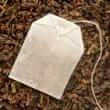Background
- Buchu (Agathosma betulina) leaves and oil of buchu were used by the indigenous people of the Cape area of South Africa for hundreds of years. Although its original use is unclear, it appears to have been applied topically on the skin, possibly as an insect repellant, and also used internally for stomach problems, rheumatism, and bladder problems. Buchu's original genus was Barosma, which was changed to Agathosma.
- Buchu contains both diosmin and hesperidin, which indicates it may have anti-inflammatory, hypolipidemic (blood cholesterol lowering), and vasoprotective actions.
- Most of the plants are still grown in South Africa where the government exercises strict control over the gathering of the leaves to prevent destruction of wild plants.
References
Natural Standard developed the above evidence-based information based on a thorough systematic review of the available scientific articles. For comprehensive information about alternative and complementary therapies on the professional level, go to . Selected references are listed below.
- El Shafae AM, El Domiaty MM. Improved LC methods for the determination of diosmin and/or hesperidin in plant extracts and pharmaceutical formulations. J Pharm Biomed.Anal. 2001;26(4):539-545.
View Abstract - Ernst E. Interactions between synthetic and herbal medicinal products Part 1: a systematic review of the indirect evidence. Perfusion 2000;13:4-15.
- Lis-Balchin M, Hart S, Simpson E. Buchu (Agathosma betulina and A. crenulata, Rutaceae) essential oils: their pharmacological action on guinea-pig ileum and antimicrobial activity on microorganisms. J Pharm.Pharmacol. 2001;53(4):579-582.
View Abstract - Sim MJ, Choi DR, Ahn YJ. Vapor phase toxicity of plant essential oils to Cadra cautella (Lepidoptera: Pyralidae). J Econ Entomol. 2006;99(2):593-598.
View Abstract - Simpson D. Buchu--South Africa's amazing herbal remedy. Scott.Med J 1998;43(6):189-191.
View Abstract







